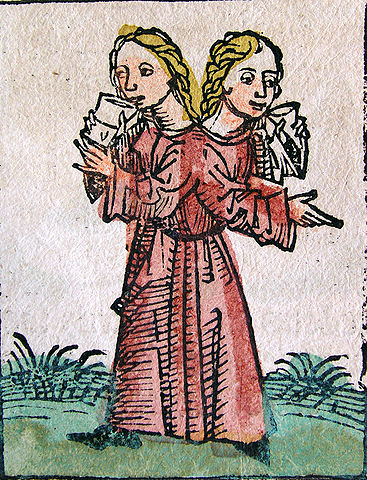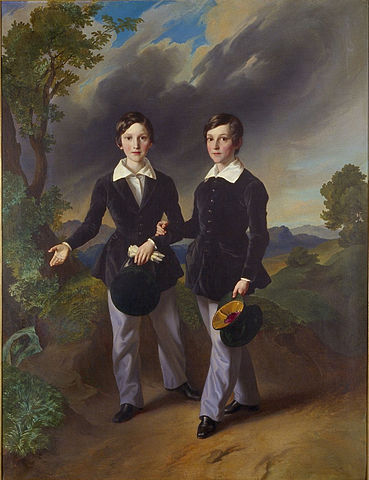
English words that are easy to confuse.
Interested/interesting.
In Thai English, people sometimes say “I am interesting” when they mean “I am interested.” If you are interested in something, you find interest in it. If you are interesting, that means others will find you of interest. It is very unusual in standard English for anyone to say “I am interesting” because that means you are praising yourself.
Uninterested/disinterested.
If you are uninterested, that means you find no interest in something. If you are disinterested, you are not influenced by any personal feelings or whether something will benefit you in any way. We would like to think that vendors of subscriptions to online databases are disinterested, but sometimes they are trying to sell us products to make money. We may be uninterested in what they are selling, because they are not disinterested.
Its/ it’s.
Almost everyone knows the difference between it’s and its, but sometimes we do not take the time to make sure we are using the right one. In Thai English in general, far too many apostrophes (’) are inserted where they are not needed. Some writers have the feeling that they belong where they do not. As a general rule, if you are tempted to use apostrophes in a thesis or academic paper, try to find some other way of saying the same thing that eliminates the apostrophe. Chances are you will avoid errors that way. It’s is a contraction of it is or it has. That means it is easy to test whether you should use it’s in a sentence. For example, if your choice is between the following two alternatives:
Bangkok traces its roots to a small trading post during the Ayutthaya Kingdom in the 15th century, which eventually grew in size and became the site of two capital cities.
or
Bangkok traces it’s roots to a small trading post during the Ayutthaya Kingdom in the 15th century, which eventually grew in size and became the site of two capital cities.

If you spell out the full form of the contraction it’s as it has or it is then clearly this would not make sense:
Bangkok traces it has roots to a small trading post during the Ayutthaya Kingdom in the 15th century, which eventually grew in size and became the site of two capital cities.
or
Bangkok traces it is roots to a small trading post during the Ayutthaya Kingdom in the 15th century, which eventually grew in size and became the site of two capital cities.
Since it’s does not fit here, you must use its. As you know, its is the possessive form of the pronoun it. That means it indicates that something belongs to something else.
Chiang Mai is Thailand’s second largest city and served as capital of the ancient and powerful Lanna Kingdom. It’s a dynamic city, attracting many expats and visitors.
To test whether the above is correct, try expanding the contraction to see if it fits:
It is a dynamic city, attracting many expats and visitors.
or
It has a dynamic city, attracting many expats and visitors.
In this case, It is a dynamic city, attracting many expats and visitors makes sense, so you are safe using it’s. Note that in formal writing such as academic essays and theses, contractions should be avoided and words fully spelled out. So it is unlikely you will have any occasion to write it’s in a thesis. That makes it even more probable that what you need is its rather than it’s.
There/ they’re/ their.
The Merriam-Webster dictionary defines their as relating to or belonging to certain people, animals, or things. Something belongs to someone or something else.
Most tourists visit Lampang to see the Thailand Elephant Conservation Center, bypassing Lampang town on their way to Chiang Mai.
The sentence refers to tourists traveling on their way, according to the travel schedule belonging to them.
There refers to in, at, or to that place or position. It is also found in the common phrases there is and there are:
From there, continue on your way along the Silom Line to Siam station.
Within Siam Square itself, there is a range of shops and services.
Take advantage of being in the center of things in the Siam Square District where there are major shopping malls, restaurants and tourist attractions.
They’re is a contraction of they are. As with it’s, as a contraction they’re should almost never have any place in formal writing. It is easier to just avoid they’re altogether when writing theses or academic articles. Instead, stick to they are.
On Koh Lanta they’re not mass-market raves; it’s just an excuse to string up the star-shaped paper lanterns and call in a local band that does great renditions of Nirvana and Oasis.
We went twice to Escapology Koh Samui and the only thing they’re missing are more adventures, as we would have come back more times.

Who’s/ whose.
Who’s is a contraction of who is or who has. Most of the time it just means who is. As with it’s and they’re, the best way to decide whether it should be used is to spell out the full expression in your mind, and see if it fits. As in past examples, formal English does not use a contraction such as who’s, so there are very few occasions when you should include it in your thesis or academic article.
Who’s your favorite member in these K-pop groups?
In the above question, expanding the who’s gives us who is or who has, and one of these makes sense:
Who is your favorite member in these K-pop groups?
You can be confident that the above question is grammatically correct. For whose, we can again consult the Merriam-Webster English Learner’s Dictionary for this definition:
Used in questions to ask who owns something, has something, etc.
— used to show which person or thing you are talking about.
— used to give more information about a person or thing that has already been mentioned.
We use whose to mean of whom:
The Burmese general stationed near Ayutthaya was not Thihapate but rather Maha Nawrahta, whose southern army waited for a month for the northern army to arrive.
As mentioned, writers of Thai English often feel that adding an unnecessary apostrophe somehow makes a sentence look more serious or dignified. Avoid this temptation. When whose is required, write whose and not who’s.
In 1351 a Tai kingdom whose court modeled itself culturally on Angkor was founded at Ayutthaya, not far from present-day Bangkok.

Who/ whom.
Who should be in the place of the subject in a sentence. Whom is in the place of an object or after a preposition.
The cessation of hostilities is significant for Myanmar refugees in Thailand, of whom the vast majority originate from areas in Myanmar where ceasefires have been announced.
For visa matters you could contact the Embassy in Bangkok, or the German Embassy in Phnom Penh with whom the Embassy in Bangkok made an agreement.
We are once again thrilled to welcome so many world-class golf players to Thailand, some of whom will be participating in the country for the first time.
In some cases, a quick test to see if whom or who fits into a sentence is to replace who or whom with a subject pronoun, such as I or he or an object pronoun, me or him. If I or he sounds and looks right, then the word that belongs there is who. If me or him seems more natural, then replace it with whom.
Whom did you meet at the Queen Sirikit National Convention Center?
To see if this is correct, try rearranging the sentence to ask, Did you meet me? This sounds all right, but the alternative, did you meet I?, sounds terrible. So you are safe using whom even if it sounds wrong. In spoken English, no one will think badly of you if you say
Who did you meet at the Queen Sirikit National Convention Center?
If you use the correct whom when talking to friends, some may even think you are too dignified and stuffy. Yet it is good to know which is correct when you are writing a formal essay. Unless you know what you are doing, then the choices you make in writing are random and meaningless. There are many other examples of using whom in sentences, some of which can seem challenging and confusing. Try never to use whom just because it sounds more formal and elaborate, since who can often be the perfect choice for a given sentence. Never reject who just because it appears simple and direct.
Pak Kret is replicating a successful project carried out by Solo on the Indonesian island of Java, which targeted the problem of unregulated street vendors who spoil traditional markets.

(all images courtesy of Wikimedia Commons)
